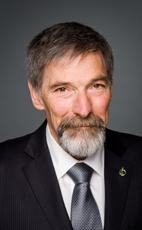Mr. Speaker, I realized something listening to this debate, and I wonder if my colleague would agree with me. I have the impression that the most important thing for this government is to get this bill passed as soon as possible and never talk about it, in case people realize that Justice Wells' main recommendation was not included.
Those who go and work on oil platforms in the future risk not coming home if the helicopter gearbox is out of oil. When the Conservatives do not want to do something, they drag their feet, they take their time, they do only half a job and they do it at the last minute. That is my impression. What does my colleague think?

